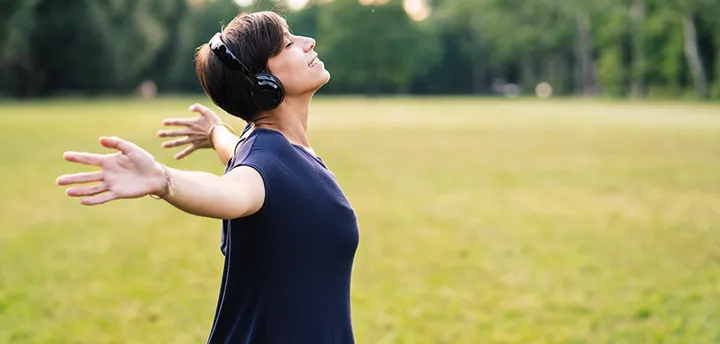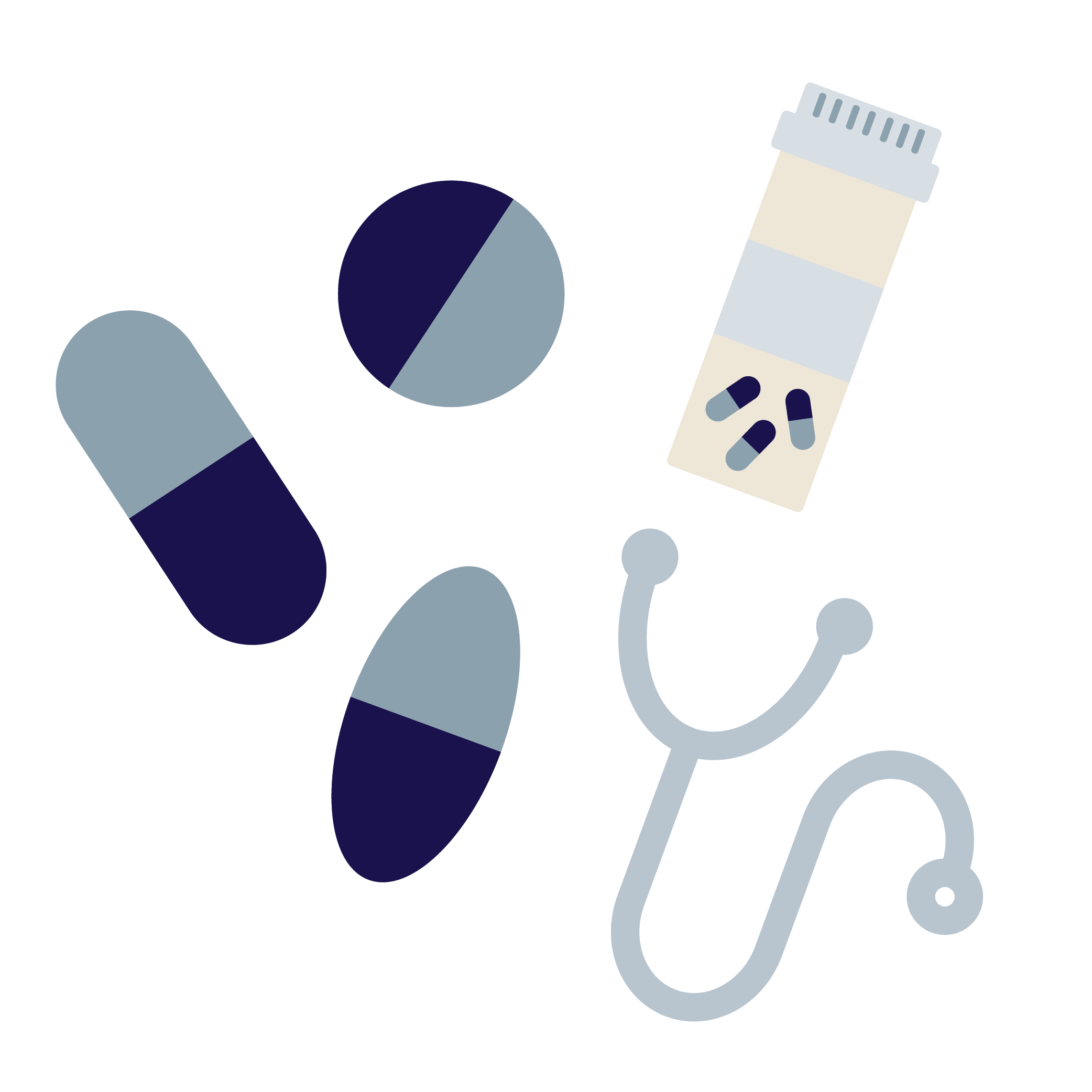
TREATMENT FOR DEPRESSION AND ANXIETY: THE FACTS
TREATMENT FOR DEPRESSION AND ANXIETY: THE FACTS
ABOUT OUR DEPRESSION AND ANXIETY TREATMENTS
We may recommend a blended approach to depression and anxiety treatment - based on the combination of psychological therapies and medication that’s right for you.
For many people, psychological therapies will be very effective. SupportRoom has the expertise you need to support your recovery. You'll find more about the therapy available by clicking on this link:
You may also be offered depression and anxiety medication to lift your mood and make you feel less anxious - if that’s suitable for you.
We’ll work with you to find the right treatment plan that meets your needs and goals.
You can also find additional resources to support your Mental Health at the Boots Health Hub at: https://www.boots.com/healthhub
TREATING MENTAL HEALTH ONLINE
You’ll choose either a telephone or video call with one of our medical team and together we’ll come up with a plan to improve your mental health.
We always work with the most up-to-date guidelines so that we can offer you the best and most effective treatment. We’ll adjust your treatment plan as needed to make sure it’s working for you.
Treating mental health online can be very effective, but we’re not able to help everyone and improvements don’t happen overnight.
If your personal situation is too complex for us, we’ll recommend that you see your GP or a mental health specialist in person.

TREATMENTS WE DON’T OFFER ONLINE
Some medicines and treatments are not available from this service.
We don’t offer:
- Benzodiazepines such as diazepam (Valium), alprazolam (Xanax), or clonazepam (Klonopin)
- Sleeping medication such as zopiclone and zolpidem.
PSYCHOLOGICAL THERAPIES AND COUNSELLING - WHAT’S AVAILABLE?
Psychological therapies and counselling give you the opportunity to talk about your difficulties and to build skills that will help you recover and stay well.
Through SupportRoom, we can facilitate quick and easy access to the psychological therapy that best suits you, based on your unique needs. You'll find more about the therapy available by clicking on this link:
For some people that will be online face-to-face counselling, for others a more structured, problem-based therapy.
Some prefer to message rather than speak in person - you might have heard the term ‘talking therapies’ but if you’d prefer not to, you don’t necessarily have to talk.
HOW DO PSYCHOLOGICAL THERAPIES WORK?
There are many different types of psychological therapies and they work in slightly different ways. SupportRoom offer a broad variety.
One approach - that may be familiar to you - is CBT (cognitive behavioural therapy). CBT can make your problems seem less overwhelming and help you put a stop to negative thought cycles. Together with your therapist, you’ll explore the links between your thoughts, your behaviour and how you feel physically and mentally.
There are several others to choose from, depending on your needs. You might benefit from Acceptance and Commitment Therapy, Dialectical Behavioural Therapy, Psychoanalytic Psychotherapy or one of the many others that SupportRoom can provide.
Whichever type of therapy you have, you’ll build skills that you can use outside the sessions. These skills should help you tackle other problems and improve the way you feel more generally.
You can find more information here: https://boots.supportroom.com/
You can also find additional resources to support your Mental Health at the Boots Health Hub at: https://www.boots.com/healthhub
HOW DO ANTIDEPRESSANTS WORK?
The medicines we prescribe are called antidepressants but they have both antidepressant and anti-anxiety effects. They boost the activity of chemicals in your brain (neurotransmitters) like serotonin and noradrenaline. These are involved in regulating mood and emotions.
Antidepressants can take 1-2 weeks to take effect, with most people starting to feel better after 4-6 weeks of treatment. It can take three months before you feel the full benefit of treatment.
WHICH ANTIDEPRESSANTS ARE AVAILABLE?
If you’d benefit from an antidepressant, there are several we can offer. We’ll look at what, if anything, you’ve tried before, your symptoms and medical history, and whether you’re allergic to any medicines or ingredients.
We usually recommend starting with an SSRI (selective serotonin reuptake inhibitor). The SSRIs we offer are sertraline, citalopram, escitalopram or fluoxetine.
Some people will respond better to an SNRI (serotonin and noradrenaline reuptake inhibitor). Of the SNRIs, we can offer duloxetine and venlafaxine.
We can also offer mirtazapine, which works in a slightly different way, if that’s best for you.
HOW DO I TAKE ANTIDEPRESSANT MEDICINE?
You’ll take your antidepressant once a day, in tablet form. Some medicines are best taken in the morning, others in the evening, but you should stick to the same time each day.
You’ll generally start on the lowest possible dose that improves your symptoms.
Everyone is different and it’s difficult to tell in advance how you’ll respond. We’ll work closely with you to see how you are feeling, adjusting the dose and the medicine if we need to.
The Patient Information Leaflet that comes with your antidepressant will have more details. And we’re here if you have any questions.
WHAT ARE THE SIDE EFFECTS?
Side effects vary from person to person and by medicine. Feeling sick (nauseous), having headaches and feeling less alert are the most common side effects in the first 1-2 weeks of treatment. These issues usually settle after this. Sexual problems are another possible side effect and these can last longer.
It’s important that you don’t suddenly stop taking your antidepressant, if you get some mild side effects early on. If you’re finding side effects problematic, please do get in touch.
HOW LONG WILL I NEED TREATMENT?
Psychological therapies can be as long or as short as you need them to be. Some people will need several sessions of counselling, others just some brief messaging. There’s no right or wrong way - whatever works for you.
Most people will stay on antidepressant medicine for at least six months after they start to feel better.
If you’ve had a few episodes of depression or anxiety, you may need longer treatment of up to two years or possibly longer.
When you feel ready to stop antidepressant treatment, we’ll help you to come off them safely.
MENTAL HEALTH SELF-CARE - WHAT CAN I DO TO HELP MYSELF?
There are many things you can do to improve and maintain your mental health, whether or not you have a diagnosis of depression or anxiety:
- Get a good night’s sleep, if you can
- Be physically active
- Avoid alcohol and drugs
- Connect with family and friends
- Learn something new
- Help others.
You’ll find more advice and further information at 5 Ways to Wellbeing or Mind.org.uk.
WHERE CAN I GET HELP FOR ADDICTION OR DEPENDENCY PROBLEMS?
If you have mental health problems alongside addiction or dependency issues, you’re not alone. Addictions often start as a way to manage negative feelings, but can quickly add their own problems. Alcohol and recreational drugs will have an effect on your mood, and may impact relationships or finances too.
There’s help and advice if you are struggling.
Support for drug and alcohol addiction is available at:
If you need help with a gambling addiction, there’s information at BeGambleAware. Their helpline number is 08080 8020 133.
The National Centre for Gaming Disorders has advice on gaming addiction.
You can find help for sex or pornography addiction here.
IMPORTANT SAFETY INFORMATION
Please tell us which other medicines you’re taking - whether they’re prescription or medicines you’ve bought without a prescription.
Your safety is essential. Your mental health should improve with your treatment plan. If you’re not improving or are feeling worse, please get in touch.
We’re not an emergency or crisis service so if you feel that you’re not able to keep yourself safe, please call 999 for immediate assistance.
WHAT ARE MY OPTIONS IF I DON’T WANT TREATMENT?
You might decide to focus on the self-care tips we’ve given, instead of opting for treatment just now.
For more detailed information on how diet and nutrition can help your mental health read how to Feed Your Mood.
Exercise gives you a boost. Want to increase your activity levels? Our team likes these free resources to build fitness - try running with Couch to 5k or build your strength and conditioning via Yoga with Adriene.
Regular breathing and relaxation exercises can calm your mind and body, replenishing your focus and energy. Being well rested improves your mood, concentration and performance.
If self-care doesn't help you feel better or you find that your mental health is getting worse, please fill out a consultation form so that we can help you.

